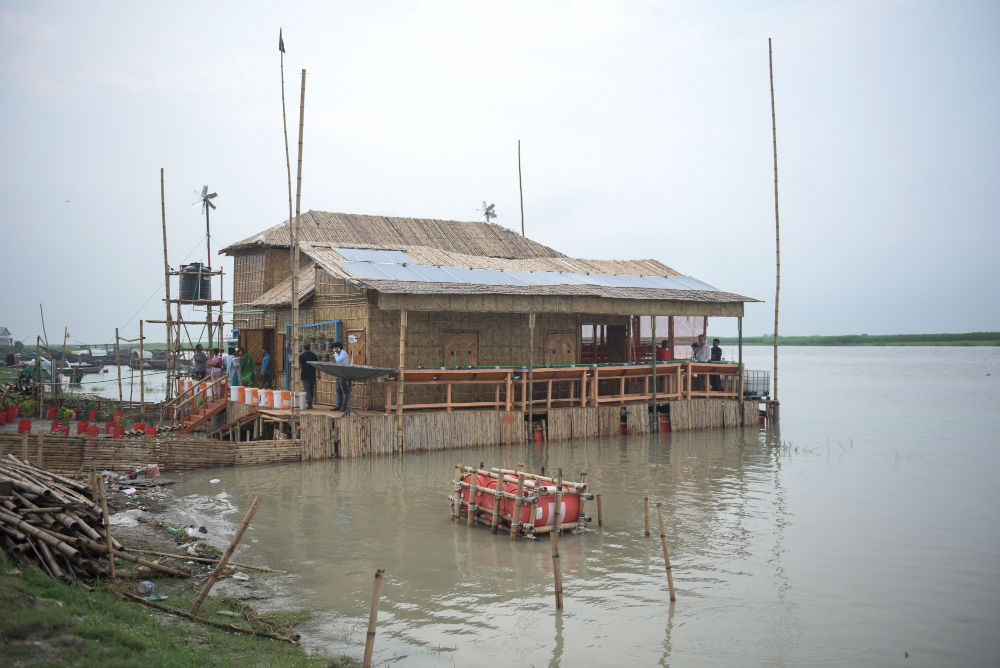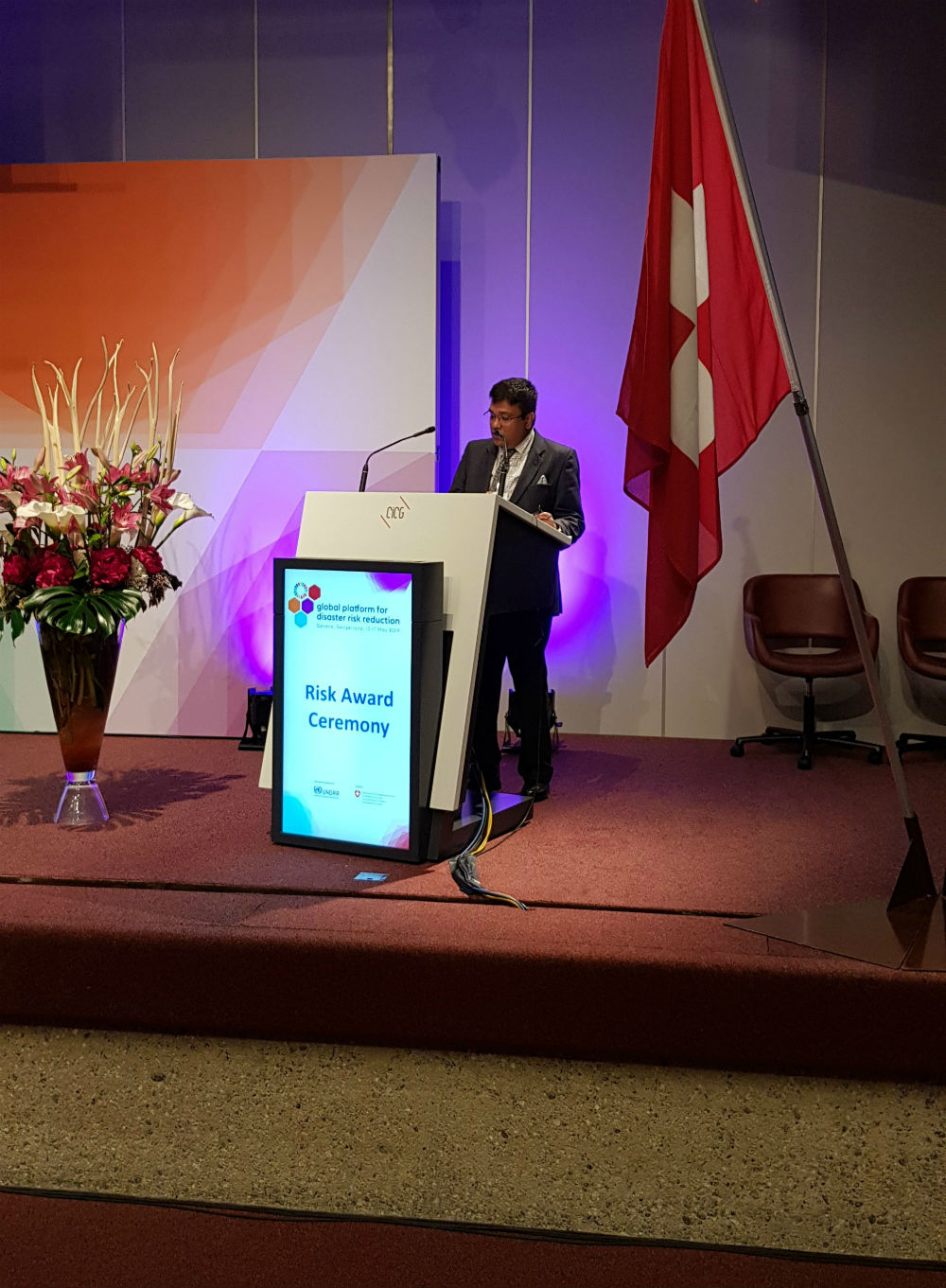A Scottish university has won a prestigious United Nations award for its pioneering flood-proof floating houses.
The University of Dundee was awarded the UN’s Risk Award for its floating homes that allow families in developing countries to survive natural disasters while producing food, water, energy and sustainable livelihood options.
The RISK Award is organised by the United Nations Office for Disaster Risk Reduction (UNDRR) and sponsored by the Munich Re Foundation. PhD student Nandan Mukherjee accepted the award, and the accompanying €100,000 prize, at the Global Platform 2019 conference in Geneva.
The Dundee project beat competition from more than 100 initiatives across 48 countries focussed on coastal resilience in the face of climate and environmental changes.

Three 196 square-metre ‘Dream Homes’ were built for $12,000 each in the pilot phase of the project. The prize money will now be used to will be used to help bring the project to scale in the flood prone river basins and deltas of Bangladesh.
Nandan said the idea of disaster resilient homes was prompted by a story he heard from a woman who lost a child in a flood and was then abandoned by her husband.
“She blames herself every single day, and she told me that she will never take another child or try for a family again in her life because she is unable to safeguard their lives,” he said.
“The area she lived in was protected by flood embankments and people living inside the area did not anticipate flooding so they were living under a false sense of security. However, the reality was something else.
“A truly disaster-resilient home needs to be robust enough to float above the flood water, providing safety. It needs to generate enough food with proper nutritional balance. It needs access to water, electricity and all other basic amenities.
“The outside walls of the house we designed can be used for vertical gardens. We can harvest rainwater for self-sufficiency in drinking water and utilise renewable energy solutions for electricity. We can further utilise modern technologies like aquaponics and poultry rearing for livelihood and waste recycling.”
Around 40% of the world’s population live in coastal areas less than 100 km from the sea, meaning they face challenges such as rising sea levels, heavy rainfall and increasing numbers of natural disasters such as extreme flooding.

In Bangladesh, some 45 million inhabitants live in areas where extreme cyclones frequently destroy homes and livelihood assets, causing further complex social and economic challenges. The Dream Homes concept was developed to address this situation.
These complex constructions can float on inundated areas and are resilient to floods, storms, earthquakes and river bank erosion. They also tackle root causes of vulnerability by improving living standards as they include permaculture-based food production systems and renewable energy systems that allow families to continue conducting basic activities in times of disasters.
This coupled with an innovative sanitation system secures hygiene standards, while the homes even provide opportunities to create further income through selling plants, eggs and other goods produced in the homes.
The houses were co-designed by locals and aim to empower disadvantaged families. The projects participants say this not only improved the structural designs, but also transferred ownership during the construction phase.
The RISK Award was presented to Nandan by the UN Secretary-General’s Special Representative for Disaster Risk Reduction Mami Mizutori at the closing ceremony of the UNDRR Global Forum for Disaster Risk Reduction in Geneva.
Ms Mizutori said, “This week at the sixth Global Platform we have heard time and again about the benefit of investing before a disaster strikes, rather than responding to its effects. This is a great example of the kind of investment that the world needs.”

